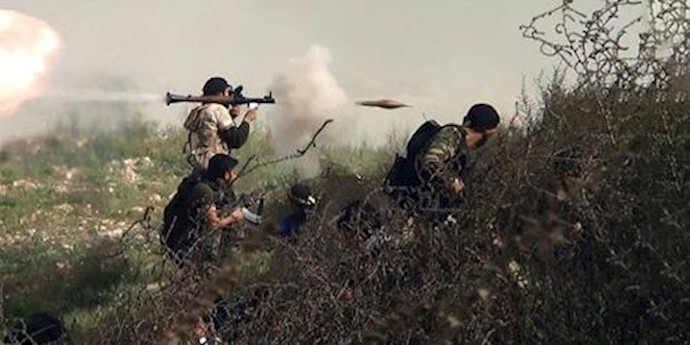The Hill, Oct. 27, 2015 – Senators on Tuesday blasted President Obama’s Syria strategy as incoherent, questioning efforts to force Bashar Assad to step down and grilling Defense Secretary Ash Carter on efforts to counter extremists.
Carter at a Senate Armed Services Committee hearing discussed new changes to the administration’s strategy against the Islamic State in Iraq and Syria (ISIS) in Syria, where the U.S. and allies are currently launching airstrikes and arming about a dozen Syrian Arab groups to counter ISIS.
Carter said the U.S.-led military coalition hopes to strengthen the new Syrian Arab Coalition, intensify the air campaign, and target more ISIS leaders and the group’s oil operations.
“If done in concert as we intend, all those actions on the ground and from the air should help shrink ISIL’s territory into a smaller and smaller area and create new opportunities for targeting ISIL — ultimately denying this evil movement any safe haven in its supposed heartland,” Carter said, using another acronym for ISIS.
“This is a half-assed strategy at best,” said Sen. Lindsey Graham (R-S.C.), a Republican presidential candidate and a leading defense hawk in the Senate.
Committee members questioned how the U.S.-led coalition intended to support Syrian rebels going after ISIS when the Syrian regime — assisted by Hezbollah, Russia and Iran — was targeting them in a bid to shore up Assad’s grip on power in the country’s four-year civil war.
Carter said the U.S. was only obligated to protect the small number of rebels who had taken part in a now-defunct Pentagon plan to train and equip a rebel force against ISIS, leaving many senators incredulous.
That program only yielded 145 rebels, out of a planned force of 5,000 this year.
Carter acknowledged that Russian forces were already hitting moderate Syrian rebel groups — including some supported by the coalition — but said the U.S. was not obligated to protect them since they were not Pentagon-trained.
His comments come amid reports that the Russian strikes have targeted groups that were trained by the CIA.
Sen. John McCain (R-Ariz.), chairman of the Senate Armed Services Committee called that policy “immoral.”
“You are making a distinction without a difference, Mr. Secretary,” he said, exasperated. “These are American-supported and coalition-supported men who are going in and being slaughtered.”
The administration has tried to avoid actions that would bring them into direct conflict with Syria or Russia, and maintains the coalition is supporting rebels who will target ISIS, not the Assad regime.
Graham tore into Carter and Joint Chiefs Chairman Marine Gen. Joseph Dunford, who said he didn’t know whether the moderate rebel groups saw Assad as their enemy and could end up fighting the regime, too.
“Come on,” Graham retorted. “You know as well as I do, both of you know, that the average Syrian not only wants to destroy ISIL, but they’re intent on destroying Assad because he’s killed 250,000 of them.”
“When the people we train to fight ISIL turn on Assad, which they surely will, are we going to fight with them to replace Assad?” he asked.
Senators also questioned the Pentagon leaders on how the U.S. would achieve its policy goal of getting Assad to leave, if he was feeling no pressure from the coalition and was bolstered by Hezbollah and Iranian ground forces, as well as Russian airstrikes.
Under withering questioning by Graham, Dunford admitted, “The balance of forces right now be in Assad’s advantage.”
“Not his advantage — he is secure as the day is long,” Graham charged.
“So this is what’s happened, folks. The strategy has completely fallen apart. Russia, Iran and Hezbollah are going to fight for their guy and we’re not going to do a damn thing to help the people who want to change Syria for the better by getting rid of the dictator in Damascus,” he said.
“So what you’ve done, gentlemen, along with the president, is you’ve turned Syria over to Russia and Iran.”
Carter also insisted that signing a document with Russia on steps to avoid collisions between the countries’ air forces did not mean they were cooperating in Syria.
He also said that Russia’s aggression would only worsen the refugee crisis in Syria and civilian casualties, but added the U.S. would “keep the door open for Russia to contribute to efforts toward a political solution, which in the final analysis is the only answer to the Syrian conflict.”
“It is principally a political effort in Syria,” Carter said.
A growing number of Democrats on the committee also appeared to be frustrated with the president’s strategy, with several expressing support for establishing a no-fly or safe zone in Syria for refugees and rebels, which would require the coalition to patrol the zone and engage enemy forces entering it.
Democratic presidential front-runner and former Obama Secretary of State Hillary Clinton earlier this month recommended establishing a safe zone in Syria, which the administration so far opposes doing. The administration says it would present legal and political challenges, divert resources away from fighting ISIS, and could bring the U.S. into conflict with Syria or Russia.
But even Democrats on the committee urged the administration to figure out a way forward soon.
“We seem lost. We seem lost, and at confusion about what to do next, unable to put any real marker down or have any plan for success,” said Sen. Joe Donnelly (D-Ind.)
“There’s refugees all over the world now, and we have the opportunity to set up safe zones, and what I hear is we’re worried about the Russians, we’re worried about the Syrians, we’re worried about all of these things.”
“I mean, at what point do we put a plan together, execute the plan, tell them what we’re going to do, and say stay out of the way?” Donnelly said.








